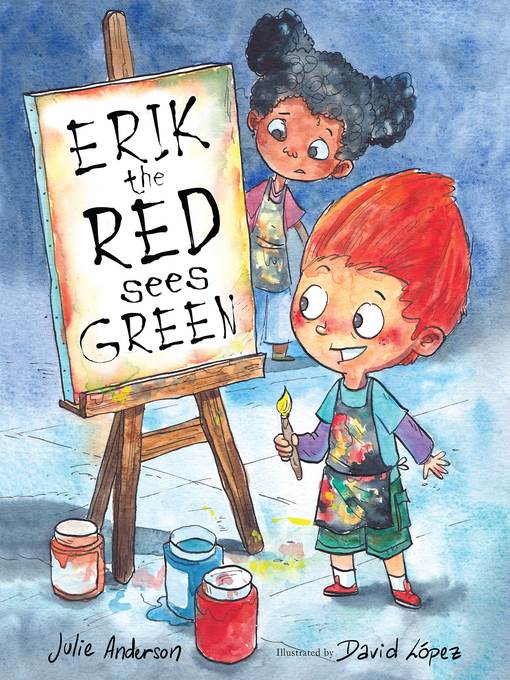
Erik the Red Sees Green
A Story About Color Blindness
فرمت کتاب
ebook
تاریخ انتشار
2013
Lexile Score
660
Reading Level
3
ATOS
4.3
Interest Level
K-3(LG)
نویسنده
David Lopezشابک
9780807521427
کتاب های مرتبط
- اطلاعات
- نقد و بررسی
- دیدگاه کاربران
نقد و بررسی

October 1, 2013
Gr 2-4-Anderson frames information within a story about a boy who plays soccer but passes the ball to the opposing team and also makes inexplicable mistakes in school. A trip to the doctor confirms that Erik is color blind. The author does an excellent job of answering the typical question, "What color do you see?" She provides ways that teachers and other adults can help children with color-vision deficiency. For example, when math problems in a textbook are printed in red ink, a black-and-white copy of the page can be a simple solution. Average-quality cartoonlike illustrations aid with the explanation of the condition. Back matter consists of two pages of answers to additional, yet common, questions. This picture book can fill a gap in most collections.-Blair Christolon, Prince William Public Library System, Manassas, VA
Copyright 2013 School Library Journal, LLC Used with permission.

September 1, 2013
Anderson's first book is a colorful, happy-go-lucky look at color vision deficiency. Erik the Red, a creative redhead, doesn't feel right. Suddenly, he can't read the chalkboard, do the right homework or kick to his own team. Rhyming admonitions playfully correct him: "Erik the Red, is your brain still in bed?" He's happiest in art class, until one day, he paints himself as Erik the Green. Classmate Annabel understands what's wrong: He has color vision deficiency, also known as color blindness, just like her father. The new, green chalkboard, color-coded homework questions, and green and red pinneys mix him up. Erik's green-tinted vision contrasts well with Lopez's brightly varied colors; even the eager faces of Erik's classmates are a spectrum of diverse skin tones. Illustrations of everyday objects compare what Erik sees to what his classmates see, revealing that seemingly minor details--yellow chalk on a green chalkboard or color-coded index cards--can be a major problem for people with CVD. With careful explanations and simple, matter-of-fact accommodations, Erik can participate in school again, but in art class, he still enjoys being "color vision quirky." An author's note answers common questions about color vision deficiency and offers ways to help people with CVD (such as resisting the urge to quiz them on what color something is), and the yellow-green endpapers act as clever punctuation. This cheery portrayal of color vision deficiency will appeal to curious and quirky kids who want to see the world a little differently. (author's note) (Picture book. 4-8)
COPYRIGHT(2013) Kirkus Reviews, ALL RIGHTS RESERVED.

























دیدگاه کاربران